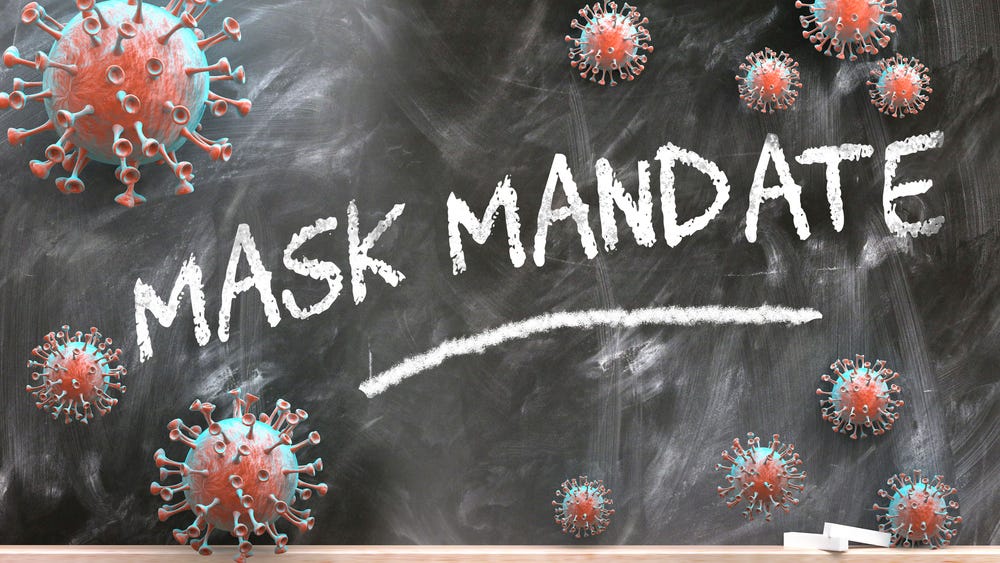E-Pluribus | April 22, 2022
History isn't over yet after all, France's Hobson's choice, and mask mandates aren't really just about masks.
A round up of the latest and best writing and musings on the rise of illiberalism in the public discourse:
Seamus Flaherty: Liberalism and its Discontents—A Review
While Francis Fukuyama’s reports of history’s demise in 1992 may have been greatly exaggerated, Seamus Flaherty’s Quillette review of Fukuyama’s new book contends that Fukuyama still has much to contribute on the subject of liberalism and democracy. Far from giving up on liberal democracy, Fukuyama focuses on its weak points and the foibles to which its adherents are susceptible, suggesting ways to compensate and make limited self-government the most attractive alternative for all the peoples of the world.
In Fukuyama’s synoptic intellectual history, Rawls is a bridge to nihilism and wokeism. Unlike Lockean–Jeffersonian liberalism, which “enjoined tolerance for different conceptions of the good,” Rawls enjoined “non-judgementalism regarding other people’s life choices.” Placing justice prior to the good, swapping a theory of human nature for an abstract “original position,” autonomy was absolutised. Choice was elevated to first place among human goods, with devastating consequences. Character formation was neglected, and life, unbound from tradition and inherited social roles, was emptied of meaning. Fukuyama doesn’t use the phrase, but he might as well have: Rawlsian liberalism created a culture of narcissism. “Freedom to choose,” he complains, extends now not “just to the freedom to act within established moral frameworks, but to choose the framework itself.” In other words, anything goes. Indeed, the more non-conforming, the better.
When told that the individual is sovereign and that our task in life is to “self-actualise,” modern liberal subjects are predictably self-indulgent. They often behave like “the spoiled child of human history” described by José Ortega y Gasset, incapable of wonder and respect. Failing to observe the principle of charity, contemporary critical theorists, for example, habitually mischaracterise their opponents’ arguments, erecting caricatures which are duly demolished with ease. Distinguishing between a good kind of identity politics and a deranged kind, Fukuyama answers point for point the objections levelled at liberalism by the latter.
Acknowledging that liberalism has been illiberal, endorsing racist and patriarchal ideas and policies, he notes that these are not intrinsic to liberalism. Rather, they are “historically contingent phenomena.” Liberalism, moreover, as a universalist philosophy, provided—and provides—“the theoretical justification for its own self-correction.” Thus, Fukuyama rightly observes that “it was the liberal idea that ‘all men are created equal’ that allowed Abraham Lincoln to argue against the morality of slavery before the Civil War.” The goal of the sane version of identity politics, he goes on accordingly, is to “win acceptance and equal treatment” for members of marginalised groups “as individuals, under the liberal presumption of a shared underlying humanity.” This, however, is lambasted by woke ideologues as a mere assertion of power, an attempt—cynical or otherwise—to impose a liberal worldview on groups who do not wish to adopt one.
Read the whole thing.
Veronique de Rugy: France's Authoritarian Establishment Faces Off Against the Even Uglier Authoritarianism of the Far Right
To hear Veronique de Rugy at Reason tell it, France can choose any flavor they want in the upcoming election — as long as it’s authoritarianism. While Marine Le Pen’s distasteful baggage outweighs incumbent Emmanuel Macron’s, both candidates share an affinity for government power that will make it more difficult for the country to make headway against the modern global trend of illiberalism.
Le Pen is everything observers around the world are saying she is. She is anti-immigrant and anti-Muslim, taking positions among the worst that populism has to offer. She's also obsessed with "wokisme," a catchall word for the "leftist" ideologies she dislikes. Unsurprisingly, she admires Hungary's authoritarian leader, Viktor Orban, and would happily follow in his footsteps by imposing his economic policies, as well as his practice of using whatever powers necessary to crush the opposition.
[ . . . ]
[Le Pen’s and Macron’s] main differences come from their geopolitical stances. On the international stage, Macron comes across as a globalist who embraces liberal democratic values. In 2018, following Hungary and Poland's moves toward authoritarianism, Macron told the European Parliament, "In the face of authoritarianism, the response is not authoritarian democracy but the authority of democracy." Unlike Le Pen, he supports NATO and other international organizations. However, he seems to be less willing to criticize Russia's actions in Ukraine when compared to other Western leaders.
[ . . . ]
Unfortunately, Macron's actions while in office have also exposed him as an authoritarian-light. Under Macron, the French have lived in a state of permanent emergency. When he was elected in 2017, he let expire some of the emergency powers put in place after the terrorist attacks of November 2015. But other anti-civil liberty police and military powers were made permanent. These new powers were deployed when the police fired rubber ball-shaped projectiles—a practice forbidden by other European countries—and dispersal "sting-ball" grenades against yellow vest demonstrators protesting another green tax on gas.
Under Macron, the Avia rule forbid any speech deemed hateful, without any legal definition of what "hateful" means. The Conseil Constitution voided it for being anti-constitutional. Macron also favors the "Fake News" rule, based on the idea that voters are wise enough to distinguish a good politician from a bad one but too naive to make a similar distinction when it comes to news.
Read it all here.
James Taranto: Covid Mask Mandates, Authority and Status
While mask mandates have been characterized as disparately as a common sense, life-saving measure all the way to Nazi concentration camp behavior, it is difficult to argue that recent mandate applications are not simply exercises in authority for authority’s sake. At the Wall Street Journal, James Taranto argues that status, both high and low, have replaced health as the impetus for continued masking.
About a year ago, mask mandates became a matter less of promoting public health than of imposing authority on people with lower status. That explains why they have lingered far longer in schools and colleges, which have the ability to control the behavior of students, than in most adult settings, even though young people are at low risk from Covid. It explains why political officeholders so often flouted their own mask mandates in public. It explains why, during the brief Covid spring of 2021, the CDC decreed that only unvaccinated people needed to keep wearing masks.
It explains why even after the CDC reversed itself in July and returned to urging masks for everyone, major retailers and service establishments required employees but not customers to wear masks. With a notable exception: Many brand-name luxury boutiques continued to demand masks for everyone. Those places sell status and therefore have an interest in taking would-be customers down a notch. Some of them similarly restricted entry on social-distancing grounds.
Read it all.
Around Twitter
David French summarizes his latest newsletter on Florida, Disney and the First Amendment for The Atlantic in a few tweets:
A Wesley Yang thread musing on what is driving the transgender activism juggarnaut:
And finally, this time Twitter has gone too far with its censorship and banned The Onion, reports The Onion… in a Tweet…












